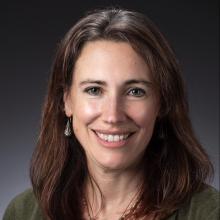Elizabeth M. Belding
CRML Affiliated Faculty
Professor, Computer Science
Professor Belding’s research spans the fields of wireless networking, information and communication technologies for development (ICTD), and more recently, NLP and machine learning methods. The latter work is the application and development of new methods for the detection of hate speech and cyberbullying in social media, and the application of these methods towards crisis informatics, specifically the detection and quantification of natural disaster data on social media. Broadly, Prof. Belding applies her background to projects of social good in order to guide research projects that positively impact society.
Elizabeth M. Belding is a Professor in the Department of Computer Science at the University of California, Santa Barbara. Prof. Belding's research focuses on mobile and wireless networking, including network performance analysis, and information and communication technologies for development (ICTD). Prof. Belding applies her wireless network expertise to a wide range of contexts, and is particularly interested in improving Internet and cellular accessibility in developing and resource-challenged communities worldwide. Her ICTD projects have included work in Zambia, South Africa, Mongolia, and refugee camps. Most recently, she has been working with Native American communities around the US. She is the founder and director of the Mobility Management and Networking (MOMENT) Laboratory. Prof. Belding is the author of over 150 technical papers on wireless networking and has served on over 80 conference technical program committees. She is currently an Associate Dean and Faculty Equity Advisor in the UCSB College of Engineering. She is an ACM Fellow, AAAS Fellow and IEEE Fellow. She is particularly proud of receiving the UCSB Outstanding Graduate Mentor Award in 2012 and the NCWIT Harrold and Notkin Research and Graduate Mentoring Award in 2015 for her mentorship of graduate students.
